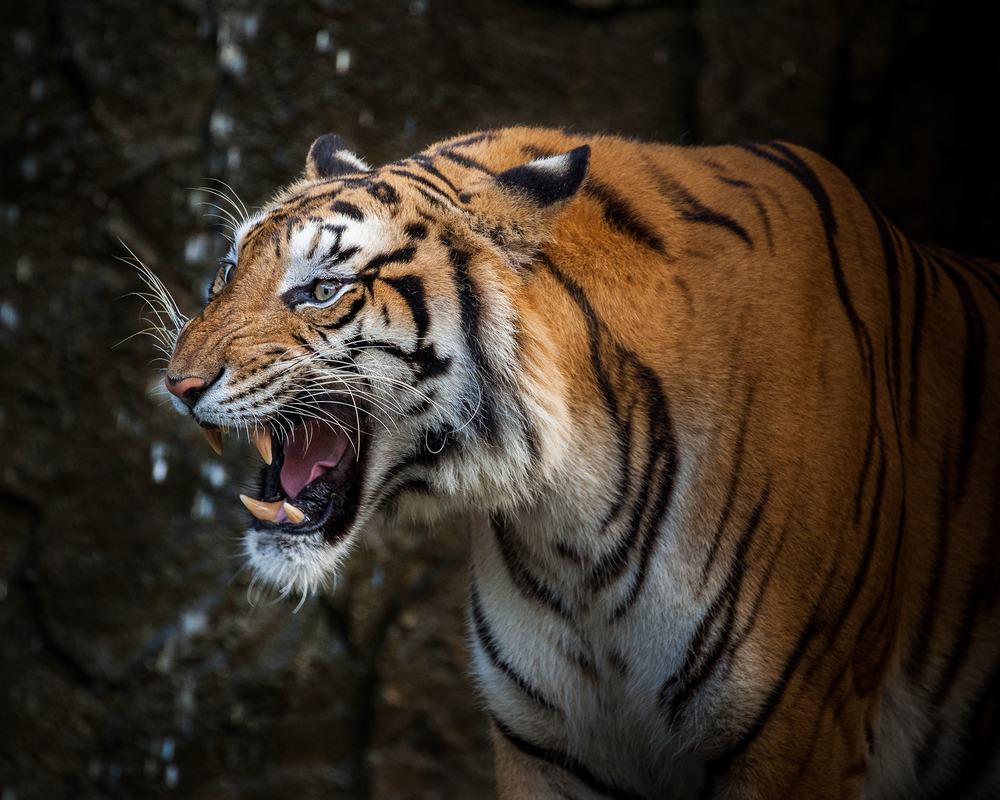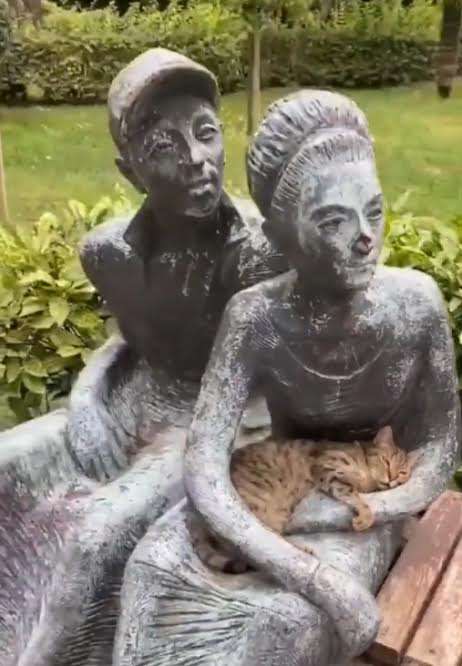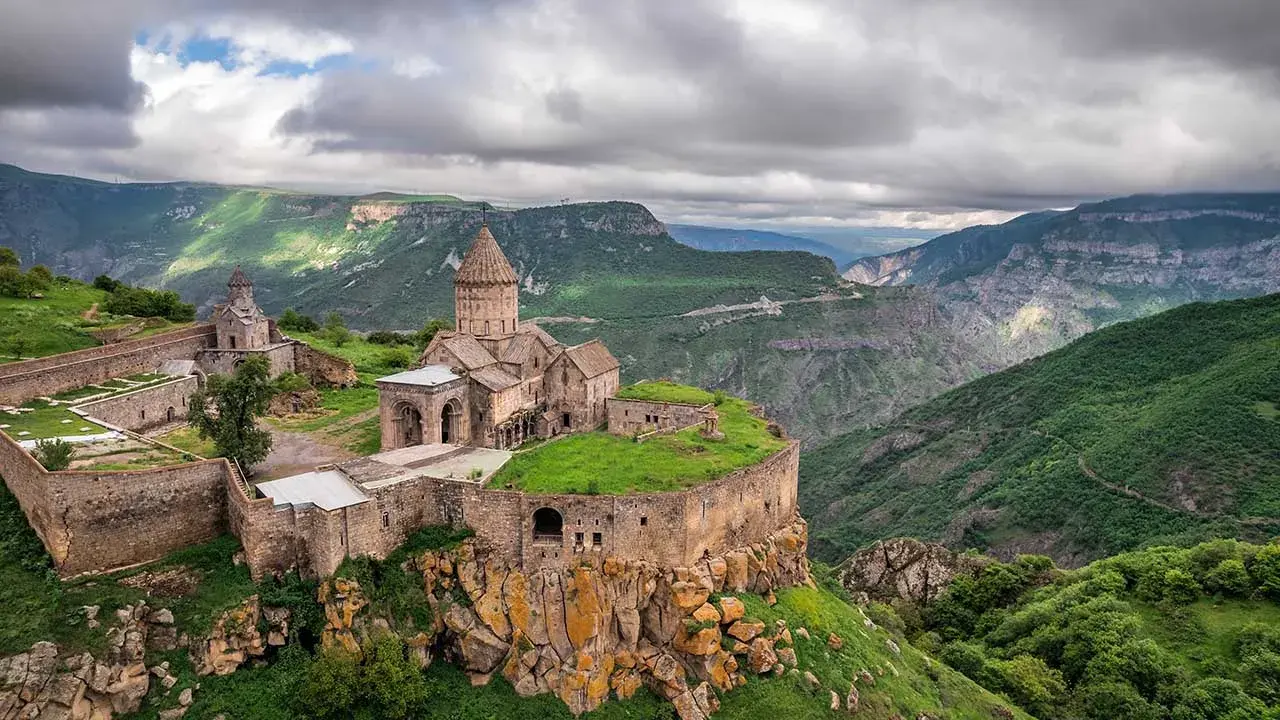There are more than 125,000 cats roaming free in Istanbul, a megacity of 15 million people. It’s impossible not to fall in love with them. Actually, their association with Istanbul goes back to the heydays of the Ottoman Empire
Istanbul is always awash with cats; they’re everywhere and all over. No matter where you go or what you do, this flood of ‘friendly meows’, soft furry bundles, gentle purring and sassy ways, will find you and steal your heart.
All too soon you’ll find yourself falling in love – with the cats of course, what else??!!!.
For non-cat lovers, too, one brush with these darling, furry creatures, could be the beginning of a new romance. And that’s, not such a catastrophe, or is it??? Ah well, then do whatever you think is good for you!
If you happen to be out of doors around lunchtime, you’ll find this flood soon starts to look like a fast-flowing river in spate. Suddenly you’ll find cats pouring out from every conceivable place – lanes, bylanes, street corners and alleys, out of windows, from on top of ledges, shop awnings, from underneath tables and chairs of those cosy and inviting streets cafes, even from between the legs of unwary customers, lazily sipping their khairans in the balmy afternoon sun.
‘Khairan’ is a refreshing, frothy drink made from Yoghurt. The moment you sit down at one of the many quaint street cafes, you are given a tall glass of this as a ‘welcome drink’, free of charge.

But keep your eyes on the felines, rushing for their daily offering of free grub. Nowhere in the world do you get to see a sight like this. People come out of their houses to put out sizeable helpings of food, and the cats don’t need a second invitation. Before you can even say “Chow Time” they’re swarming all over the place for their share of tasty tit-bits.
It was a lucky coincidence that that I was an eye-witness to this most extraordinary event, during a day’s stopover in Istanbul, en route to Northern Cyprus to attend a 10-day World Peace Conference, in 2010
In Istanbul, while cats are not formally adopted, they are taken care of by no one in particular and everyone in general. It’s so cool! The cats belong to everyone and yet to no one, As a result, cats are not shy or wary of strangers
Involuntarily questions that followed in the wake of the feline rush were: “What’s this???”. Or “How on earth did all the cats on the planet get together in Istanbul????” Obviously, these would be typical questions anyone would ask in such a situation
It is estimated that there are more than 125,000 cats and 130,000 dogs roaming free in Istanbul, a megacity of 15 million people, so it is practically impossible not to fall in love with them.
Actually the association of cats with Istanbul goes back to the heydays of the Ottoman Empire. Since those days they’ve been admired and loved for their cleanliness and hunting skills that helped to keep the city free from rats, mice and other vermin. And protect the city from plague.
Cats can be found in huge numbers in Morocco and on the Greek Island of Santorini. The mild, temperate climes of Mediterranean countries is a primary reason for their huge numbers. It is unfortunate though that I never ran into cats during my stay in Cyprus, or later during a brief visit to mainland Greece.

While on the subject, it is worth mentioning that Japan, too, has some locations where cats exclusively dominate the landscape. The three most prominent, are the 1.6 kilometre island of Aoshima in Ehima prefecture in southern Japan, with an almost exclusive cat population; humans on the island are almost next to nothing. There are just 16 people on the island, while there are more than 120 cats.
A local resident says Aoshima was once a thriving fishing village with over 800 persons, but shrinking sardine catches in the waters around the island forced most of residents to move to the cities.
The other two places are Tashiro island (120 cats) and Ainoshima Island (150).
At many places along the streets of Istanbul, or by the sides of buildings, you can see small containers for food and water by the sides of buildings, together with small, improvised cubby-hole structures for shelter.
Cats have featured prominently in ancient myths, legends, magic, witchcraft and animistic religions – Egyptians were the first to domesticate cats 3000 years ago. Later they deified the cat as Basht, a goddess among their pantheon of gods and goddesses. They have been equally popular in folklore and fairytales.
The most endearing among these are “Puss-in-Boots”, a story by17th century French author Charles Perrault; the charming Simkin, a feline character created by British writer and painter, Beatrix Potter; then there’s the grinning Cheshire Cat in “Alice in wonderland” Or Rudyard Kipling’s tale about “The Cat Who Walked by Himself”.
In Istanbul, while cats are not formally adopted, they are taken care of by no one in particular and everyone in general. It’s so cool! The cats belong to everyone and yet to no one, As a result, cats are not shy or wary of strangers.
They’ll walk right up and greet you with a friendly ‘meow’, which could mean anything from “Hey, what up, mate?” to “How about a treat?” And if you still haven’t noticed them, they’ll come and snuggle against you. That always works!

Their popularity has not gone unnoticed by those on social media. Someone started a Hagia Sofia Cat account on Instagram, among many others. It now has 106,000 followers.
At last it was good to be among my own ‘battalion’ of cats, back home in Oman. For the most part of my 17-year-stay in Muscat, I had a following of six cats. Only one of them, Annie, my favourite, was a resident cat. The other five were ‘non-resident cats’ who had made my back garden a convenient, come-and-go-as-you-please place for food and shelter.
I built a makeshift shed for them and always kept enough food and water there, so that they felt comfortable and secure. But Annie had her own way of telling them that “your place is in the garden, and I’m the ‘house cat’ !”
************************************************************************
Readers
These are extraordinary times. All of us have to rely on high-impact, trustworthy journalism. And this is especially true of the Indian Diaspora. Members of the Indian community overseas cannot be fed with inaccurate news.
Pravasi Samwad is a venture that has no shareholders. It is the result of an impassioned initiative of a handful of Indian journalists spread around the world. We have taken the small step forward with the pledge to provide news with accuracy, free from political and commercial influence. Our aim is to keep you, our readers, informed about developments at ‘home’ and across the world that affect you.
Please help us to keep our journalism independent and free.
In these difficult times, to run a news website requires finances. While every contribution, big or small, will makes a difference, we request our readers to put us in touch with advertisers worldwide. It will be a great help.
For more information: pravasisamwad00@gmail.com











